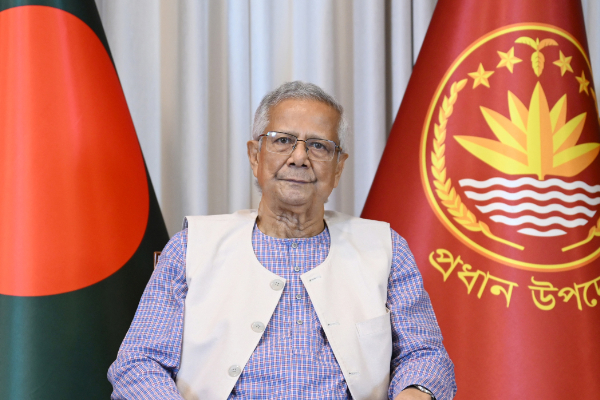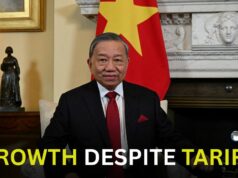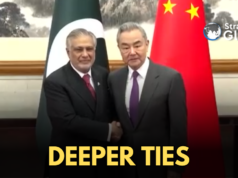
“Certain vested groups are carrying out false, fabricated and intentional propaganda. The army is more united than ever before. The responsibilities entrusted to us will be carried out by the army with full commitment.”
Who was senior Bangladesh army officer Lt Gen Mohammad Mainur Rahman taking aim at when he made those remarks at a press briefing in Dhaka on Wednesday?
Sreeradha Datta, professor of international relations at Jindal Global University believes Gen Rahman was targeting the interim administration led by Mohammad Yunus and certain other stakeholders.
“The interim administration is seen to be pandering to elements that could delay or even derail the elections proposed to be held in February next year,” she told StratNewsGlobal. “It appears supportive of the Jamaat-e-Islami idea of holding a referendum before the elections. It also has the backing of the students-led NCP (National Citizens Party).”
The referendum seeks safeguards to ensure no future government will be able to rule in an arbitrary or authoritarian manner. It wants curbs on the powers of the executive, electoral reforms, proportional representation and so on.
None of these demands are objectionable. They in fact flow from the fear that minus such safeguards, Bangladesh will descend into another round of authoritarian government, which is what rule by the Awami League was all about.
The BNP has behaved in much the same manner in earlier years when it was in power. But it has no interest in the referendum because its leadership apparently believes that with the Awami League banned from contesting, the election is virtually in its pocket.
For the army, it’s even more black and white: elections are a way out of the current political uncertainty and turmoil.
A report in the Dhaka Tribune quoted Gen Rahman as saying that “We hope the election will bring stability to the country and the law and order situation will gradually improve. The army will return to the barracks after the election.”
Prof Datta suspects Gen Rahman’s remarks contained a hidden warning to the interim administration: in Jan 2007 the army stepped in to topple the caretaker government of Iajuddin Ahmad who had earlier served as Bangladesh president under prime minister Khaleda Zia.
At that time the army feared the election would be neither free nor fair given that Ahmad’s political loyalties were with Khaleda.
“That caretaker government lasted nearly two years,” Prof Datta noted, “and it was seen in many circles as an army takeover. It carried out a major anti-corruption drive before holding democratic elections in Dec 2008.”
Could the army repeat that? Gen Rahman’s remarks suggest that with the Jamaat stepping up its pro-referendum campaign, this issue may have figured at the highest levels of the army including the chief Gen Waker-uz-Zaman.
The Jamaat plans to hand over a memorandum on this issue to the leader of the interim administration, Mohammad Yunus on Thursday. It has also called for a rally to be held on Nov 11 to press its demand.
Why is the Jamaat keen on a referendum when it is widely expected to do well in the elections? Some estimates indicate it may win 70 or more seats in parliament. It has deep pockets with each cadre handing over a percentage of his salary to the Jamaat. Add to that money from the Bangladeshi diaspora.
The Jamaat is probably haunted by its mediocre past performance despite its ability to mobilise thousands of supporters. That is also testament to the discipline with which its cadres behave in contrast to those of the BNP, with media reports accusing them of intimidation and extortion.
The BNP’s situation reflects lack of leadership. Khaleda’s son Tarique Rahman is yet to make an appearance on home soil. His return could help bring the cadres back in line. But in his absence, middle level leaders are handling issues as best as they can.
The BNP is seen as hardly different from the Awami League when it comes to how its cadres behave. If the BNP does win the elections, politics may reflect those of the Awami League days. That would be the ultimate irony.
Thirty eight years in journalism, widely travelled, history buff with a preference for Old Monk Rum. Current interest/focus spans China, Technology and Trade. Recent reads: Steven Colls Directorate S and Alexander Frater's Chasing the Monsoon. Netflix/Prime video junkie. Loves animal videos on Facebook. Reluctant tweeter.




